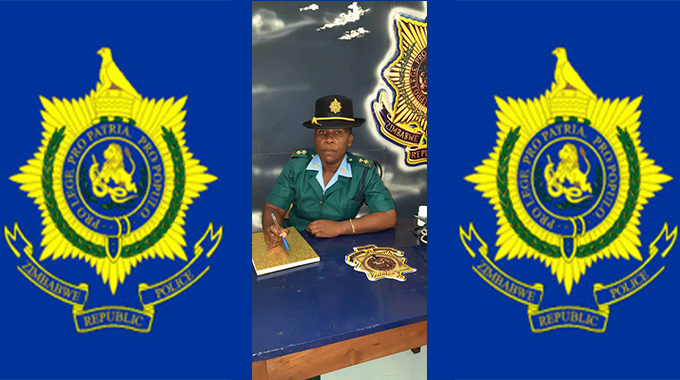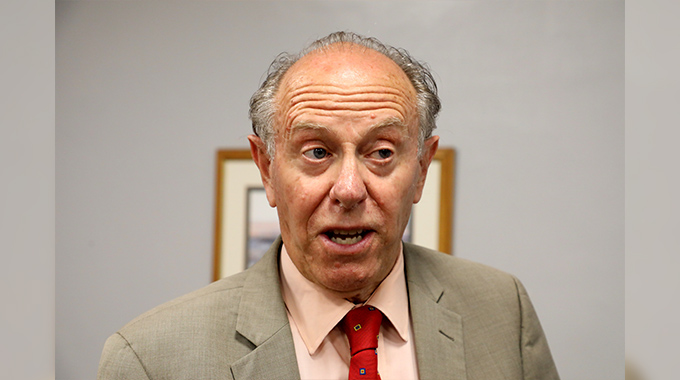Covid-19 calls for shift in journalism education

Sibongile Mpofu
The Covid-19 global pandemic has brought with it catastrophic results worldwide with thousands of people succumbing to the virus and millions more infected.
Governments all over the world are trying to find ways to grapple with the pandemic. Not only is immense pressure on scientists, policymakers and sectors such as the economy and health but journalism too has been affected.
While significant progress had been made in reviewing the journalism curricular to be gender sensitive, Covid-19 has brought a new set of challenges to the journalism profession, in terms of both practice and training.
Being one of the critical frontline workers during this pandemic, the role of journalism, particularly that of public information dissemination, has come under immense pressure if not scrutiny on how the pandemic is covered.
Already, the glaring challenges that journalists experience on the ground in covering Covid-19 speaks a lot to journalism curricular generally and specifically journalism training models — how there is need for both to be re-aligned with current global realities, in terms of not only equipping journalists with the requisite skills and knowledge on how to effectively cover health crises of such magnitude, but to also impart entrepreneurial skills that can enable independent and critical journalism.
Coverage of Covid-19 therefore also challenges journalism educators and training institutions, not only to adapt new ways of teaching and learning — but also to address the glaring gaps in journalism curricular and training models.
Post-Covid-19, gender in general and female journalists in particular, will be the biggest losers if attention is not given on the impact of the pandemic on the journalism curricular.
Thando Nkomo, a lecturer and acting head of the journalism department, at the National University of Science and Technology (Nust) feels that African thought and specifically gender issues around the impact and effects of Covid-19 have been given limited space, and hence the coverage has mostly been superficial, failing to interrogate from a local perspective.
“Stories to do with women have been around the stereotypical roles of women and how the pandemic is affecting their ability to care for the children, and access sanitary wear.
“Generally speaking the African response has been side-lined. What we see is a heavy emphasis on projecting the trends and likely impact of the virus from an American and European perspective at the expense of the African and Zimbabwean experience,” added Nkomo.
Another lecturer in the department, Nqobile Nyathi felt that while the coverage was informative in terms of making people aware of important facts about the virus, and how they can protect themselves and their families, there was no conscious attempt to highlight issues peculiar to women, the elderly and young people.
“Stories tended to homogenously look at Zimbabweans in general, and as a result stories were rather, for example, focussing on the economic impact. The media missed an opportunity to produce more unique stories and to add more depth to their coverage”, she said.
A film, radio and television production lecturer at the University of Zimbabwe, Sanelisiwe Sibanda echoed similar sentiments saying coverage was not comprehensive, especially by the traditional mainstream media, which most people still regard as reliable. She said the stories, which also lacked gender-balance in terms of perspectives and sources, were just announcements of statistics from Government.
“There was not much detail about how the virus was affecting ordinary citizens. Yes, there were articles raising awareness on the virus, how it spreads and the safety precautions but there were few stories that sought to go deeper to expose the impact the virus had on wider society”, she added.
Lonster Mutata, former media student from Zimbabwe Open University said while generally there was balance between local and global news, the Covid-19 pandemic has brought to light the gaps that need to be filled by both media houses and journalism training institutions. He added that media houses were caught unaware, and therefore unprepared to cover crisis of this magnitude.
“There are long term impacts to the journalism curricular. Institutions need to produce graduates who are equipped to cover disasters such as Covid-19. Modules such as health reporting need to focus more than just dissemination of information”, he added.
Simiso Ncube-Matonhodze, a journalism student at Nust, said there has been intense coverage of the Covid-19 pandemic both by the local traditional and online media especially in issues regarding prevention and mitigating the impact of the virus. However, there is inadequate coverage on what the public needs to do after contracting the virus.
“There is less information on what measures need to be taken after one contracts the virus, the steps to be taken, treatment rendered and aftercare for those who have recovered. More focus is on fatalities and the rate of new infections or transmissions rather than recoveries”, she added.
With regards to gender-balancing of Covid-19 stories, Ncube-Matonhodze felt that the media fails to provide a broader picture of the plight of women specifically and that in this pandemic women are more at risk to the virus exposure and more vulnerable primarily because of their role as care givers in the home.
“The responsibility of fetching water and maintaining hygiene standards falls on their shoulders. In addition, if people are self-isolating at home, women are responsible to care for them. Furthermore with the acute water shortages in Bulawayo women are more at risk of exposure to the virus as they queue long hours for water with no social distancing, and yet their plight and perspectives on the pandemic remain annihilated by the media”, she said.
Another former journalism student from Great Zimbabwe University, Nozipho Rutsate said while the media played its educative and informative role during the pandemic, there were pockets of misinformation especially peddled on social media networks.
The key challenges identified facing journalists during the Covid-19 pandemic, according to Nkomo, are lack of health communication skills such as breaking down medical and science language to make stories relevant for audiences, re-telling official commentary on the pandemic, especially from government and the World Health Organisation (WHO) as well as the sensationalist approach to news coverage which he feels restricts public knowledge on Covid-19.
Other challenges identified include the polarisation of the media which impacted the way public, private and online media covered Covid-19 — such biases which leave the public less informed.
“Personally, I sometimes found this detrimental to keeping the public informed.
“This kind of predictable coverage can force readers to turn to sources that provide just straight facts without some of the ideological baggage that often comes with Zimbabwean media coverage”, she said.
Nyathi noted that journalism trainers should place emphasis on journalists thinking outside the box in terms of story ideas.
She said there should be more focus on teaching future journalists to go beyond the obvious and basic coverage.
“For example what’s the purpose of writing stories about Covid-19 statistics that people have already seen on television and social media? Newspaper reporters in particular need to be taught to think more in terms of explanatory and issue-based journalism that goes beyond events” she added.
While these are aspects that exist in most journalism writing modules across media training institutions, following models outlined by organisations such as Unesco and GenderLinks, the feeling by academics and students is that educators need to place more emphasis and time to them, especially about covering disasters, such as pandemics. Most news writing courses do not go beyond circumstances that can pose physical and emotional danger to journalists nor how reporters can deal with situations where news gathering is made difficult or impossible because of health risks.
In addition, news writing courses must also teach gender equity and sensitivity in news coverage by balancing sources between men and women.
Health communication should teach responsible reporting in the wake of a pandemic, while information technology courses should involve practical training on software that aids verification of facts to avoid disinformation and misinformation.
Ncube-Matonhodze feels that sensationalism has resulted in misleading headlines, lack of verification, misinformation and mix-up of Covid-19 cases especially by the mainstream media.
“I would love to see journalists being trained on issues to do with public accountability in a pandemic and how to combat fake news or misinformation and also on conflict sensitive journalism to avoid perpetuating stigma in affected and infected people.
“I would also recommend training on journalism ethics specific to covering pandemics such as patient consent, confidentiality and privacy, as well as fact-checking”, she said.
“In times of disasters, the media should be the mouthpiece of the people in respect to promoting the rights of citizens during disasters. To this end, advocacy journalism, investigative journalism and reporting disasters should be mandatory within the journalism curricular,” said Rutsate.
Sibanda concurred adding that health communication and information technology should be maintained as core courses for the entire duration of journalism training programmes.
“We are always faced with various pandemics, HIV/Aids, TB, Malaria, Typhoid and recently Covid-19.
“Equipping our students with the necessary skills not only to report and write about these health issues ensures that when we do get outbreaks they can do thorough investigations and write accurate and well balanced stories that not only create awareness and educate, but can interrogate health policies surrounding handling of these diseases thereby empowering ordinary citizens in the fight against such diseases,” she said.
Other calls by both academics and journalism students were that health communication and health reporting modules should also incorporate sections on health crisis communication or disaster communication.
In addition, such modules should also be made mandatory.
Another key recommendation was that there is need for journalism to go beyond the classroom and to teach entrepreneurial skills that can encourage the establishment of people-sensitive media start-ups incubated at universities so that such media organisations can champion the journalism cause with some independence from commercial pressures.
Dr Sibongile Mpofu is a journalism and media studies lecturer at the National University of Science and Technology. This story is part of the GL News Service Gender and Covid-19 news series.












Comments